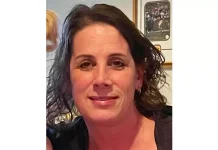The owners of the world famous Priory Clinic have been fined £140,000 today after a woman killed herself on a ward where conditions were ‘shambolic.’
The unfortunate discovery
Francesca Whyatt, 21, was discovered unconscious in a lounge with a ligature around her neck at the facility in Roehampton where celebrities including Kate Moss, Pete Doherty and Michael Barrymore have been treated.
Ms Whyatt, a quadruplet from Knutsford, Cheshire, was rushed to Kingston Hospital, but died three days later on September 28 2013.
Priory Healthcare Limited, which runs the hospital, admitted failing to discharge a duty under Section 3(1) Health and Safety at Work Act 1974.

Whyatt’s incident
Ms Whyatt had been admitted to the Priory’s Personality Disorder Unit, where many patients are deemed high risk, in March 2013, Southwark Crown Court heard.
She was due to receive treatment at the clinic for the next 27 weeks.
Before handing down his sentence Judge Tony Baumgartner said: ‘It has been ten years since Francesca died.
‘She is not forgotten but the ongoing pain of her death is still very real for those who loved her and those whom she loved.
‘Francesca’s death was tragic and untimely. It came about because of a freak combination of events at the hospital that was caring for Francesca.’
Victim impact statements
Members of her family, many of whom were present in court, made statements describing the impact Francesca’s death had on her.
Daniel Whyatt, Francesca’s brother, said: ‘The tragic, untimely, and entirely preventable death of our beloved sister has had profound impact, and has repercussions well beyond those conceivable to anyone outside of our little family unit.’
He went on to criticise the standard of care received by his sister at the hospital, saying: ‘Francesca told me repeatedly of the staffing issues, the disquiet it caused, not to mention the havoc wreaked on a daily basis.
‘She told us how she often needed to talk to someone but felt unable to as they didn’t speak English or would only be on the unit once or twice before being replaced.
‘Francesca wanted desperately to leave, and begged me personally to get her out of there multiple times, you cannot imagine how helpless we all felt.’
Signs of incompetence all over
Dr Lord listed twelve incidents that had taken place over the previous ten days, including a front door being left open, a patient being able to get hold of a hacksaw, and staff not knowing patients’ names, or being rude or unhelpful.’
The lounge where Ms Whyatt was found unconscious in a zone which was not been properly monitored.

On September 25 the hospital faced what Dr Lord described as ‘completely unprecedented’ circumstances’, which meant normal observations could not be carried out, the court heard.
READ ALSO: Brazilian actress and model Isis Freitas DIES aged 22 after being rushed to hospital
In the morning one patient self-harmed and threatened staff, which resulted in police being called.
This meant one member of staff had to be on the phone talking to police.
At around 3.30pm a patient then escaped from the garden, where the patients had been moved, and a member of staff had to go after her.
There were warnings
Dr Adrian Lord, head of the clinical team on the ward where Francesca was being treated, had sent an email to the clinical service manager and hospital director stating that he had ‘no confidence in the staff to maintain safety’ on 13 September 2013.
The judge said: ‘The defendant’s failure to properly maintain and/or implement its observation system was raised in an email from Dr Adrian Lord just 12 days before the incident.’
Dr Lord warned that the front door had been left open ‘more than once’; that a patient (who happened to be Francesca) had managed to pick up a hacksaw dropped from a maintenance worker, even though at that stage she was on constant observation; that intermittent observations ‘were not being done for long periods’.
The judge added: ‘This, coupled with the defendant’s increasing reliance on agency staff at the Priory Roehampton, “jeopardised safety”, as one of the ward staff nurses was to later observe.’
He also highlighted flaws in the zonal monitoring system used at the hospital, under which a single member of staff was responsible for monitoring two floors of the four-floor ward.












